As a nonprofit, marketing your organization is crucial to attracting donors, volunteers, and supporters. However, with limited resources and budget, it can be challenging to create effective marketing campaigns. Fortunately, various marketing tools for nonprofits are available to help you promote your cause and achieve your goals.
Just as a highlight, one of the most important marketing tools for nonprofits is email marketing. By building an email list of donors and supporters, you can send regular newsletters, updates, and appeals to keep them engaged with your organization. Email marketing platforms like Mailchimp and Constant Contact offer affordable plans and features specifically designed for nonprofits.
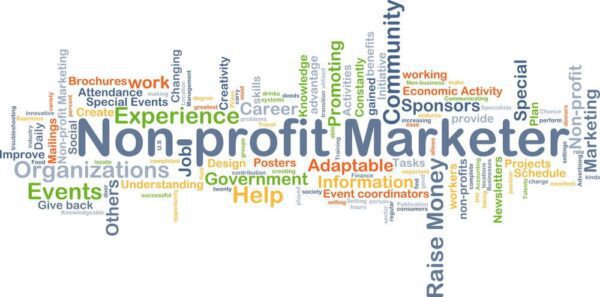
Another essential marketing tool for nonprofits is social media. Platforms like Facebook, Twitter, and Instagram allow you to reach a wider audience and share your mission and impact. You can also use social media to run fundraising campaigns, share success stories, and engage with your community. Social media management tools like Hootsuite and Buffer can help you schedule and automate your posts, saving you time and effort.
Understanding Nonprofit Marketing
As a nonprofit organization, marketing is essential to amplify your mission, attract volunteers and supporters, and solicit donations. Nonprofit marketing is the use of marketing tactics and strategies to promote your cause and create awareness about your organization.
To create a successful nonprofit marketing plan, you need to start by identifying your audience. Who are you trying to reach, and what are their needs and interests? Understanding your audience will help you create a message that resonates with them.
Once you have identified your audience, you need to define your nonprofit marketing goals. What do you want to achieve with your marketing efforts? Do you want to raise awareness about your cause, attract volunteers, or solicit donations? Your goals will help you focus your efforts and measure your success.
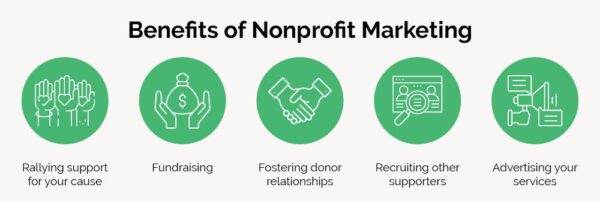
Your nonprofit marketing message should be clear and concise. It should communicate your mission, values, and the impact you are making in the community. Your message should be consistent across all your marketing channels, from your website to your social media platforms.
To create an effective nonprofit marketing strategy, you need to develop a nonprofit marketing plan. Your nonprofit marketing plan should include a summary of your organization, business initiatives, target market, marketing strategy, budget, marketing channels, and marketing technology.
Overall, nonprofit marketing is an essential tool for promoting your cause, attracting volunteers and supporters, and soliciting donations. By understanding your audience, defining your goals, creating a clear message, and developing a nonprofit marketing plan, you can create a successful nonprofit marketing strategy.
Digital Marketing for Nonprofits
Digital marketing is the grand marketing tool for nonprofits to reach a wider audience, increase engagement, and drive donations. A well-executed digital marketing strategy can help your nonprofit to achieve its goals efficiently and effectively.
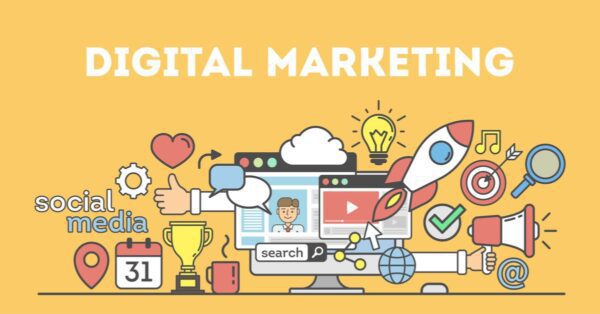
Social Media
Social media is an excellent marketing tool for nonprofits to connect with their supporters and potential donors. Facebook, Instagram, Twitter, and TikTok are all popular social media platforms that can be used to promote your nonprofit’s cause. By creating social media posts that are engaging, informative, and shareable, you can reach a larger audience and encourage them to take action.
Social Media Marketing
Social media marketing is an effective way to promote your nonprofit’s cause and increase engagement. You should avoid the myth that you need to be on as many social media platforms as possible and only select those that efficiently cater for your target audience’s needs. By creating targeted ads on social media platforms, you can reach specific audiences and encourage them to take action. Social media marketing can be used to promote events, fundraisers, and other initiatives.
Content Marketing
Content marketing is a powerful marketing tool for nonprofits to educate their audience, increase engagement, and drive donations. By creating high-quality content that is informative, engaging, and shareable, you can position your nonprofit as an authority in your field. Content marketing can include blog posts, videos, infographics, and other types of content.
Website
Your nonprofit’s website is the hub of your digital marketing strategy. It should be well-designed, informative, and easy to navigate. Your website should include information about your nonprofit’s mission, programs, and impact. It should also include a donation page that is easy to use and secure.
Hence, digital marketing is an essential tool for nonprofits to reach a wider audience, increase engagement, and drive donations. By using social media, social media marketing, content marketing, and a well-designed website, you can position your nonprofit for success.
Marketing Tools and Strategies

As a nonprofit organization, you need to be strategic with your marketing efforts to reach your target audience effectively. Fortunately, there are many marketing tools for nonprofits to help you achieve your goals. Here are some of the most essential ones:
1. Analytics
Analytics marketing tools for nonprofits are crucial for tracking and measuring your marketing efforts’ success. Google Analytics is an excellent free tool that provides you with valuable insights into your website’s traffic, such as the number of visitors, pageviews, bounce rate, and more. With this information, you can make data-driven decisions to improve your website’s performance and optimize your marketing campaigns.
2. Canva
Canva is a graphic design tool that allows you to create stunning visuals for your marketing materials, such as social media posts, flyers, and infographics. With its user-friendly interface and extensive library of templates, images, and fonts, you can create professional-looking designs even if you have no design experience.
3. Asana
Asana is a project management tool that helps you streamline your team’s workflow and stay organized. With its intuitive interface and features like task assignments, deadlines, and progress tracking, you can manage your marketing campaigns more efficiently and ensure that everyone is on the same page.
4. Grammarly
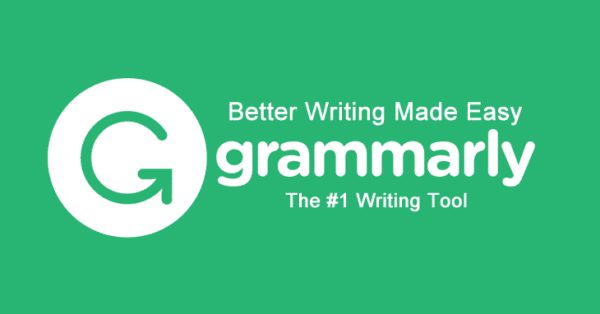
With drastic technological advancements, new marketing tools for nonprofits continue to emerge. However, old ones such as Grammarly continue to prove useful. Grammarly is a writing assistant tool that checks your writing for grammar, spelling, and punctuation errors. It also provides suggestions for improving your writing’s clarity, tone, and style. With this tool, you can ensure that your marketing materials are error-free and easy to read, which can improve your audience’s engagement.
5. Later
Later is a social media scheduling tool that allows you to plan and schedule your social media posts in advance. With its drag-and-drop calendar and visual planner, this is one of the critical marketing tools for nonprofits, where you can create a cohesive social media strategy and ensure that your posts are published at the optimal times for your audience.
6. CRM
A CRM (customer relationship management) tool helps you manage your interactions with your donors and supporters. Tools like Salesforce and Hubspot offer features like contact management, email marketing, and analytics to help you build and maintain strong relationships with your audience.
7. Mailchimp
Mailchimp is an email marketing tool that allows you to create and send email campaigns to your subscribers. With its drag-and-drop email builder and automation features, you can create personalized and engaging emails that drive conversions and donations.
8. Google Ad Grant
Google offers a set of marketing tools for nonprofits to use and maximize their efforts, one of them being the Google Ad Grant. Google gives qualified organizations up to $10,000 in-kind grants, which allows nonprofits to have that amount’s worth of search engine marketing, allowing you to appear alongside competitor ads. You can use the tool to raise awareness and drive more traffic to your website, all of which are important for meeting your goals.
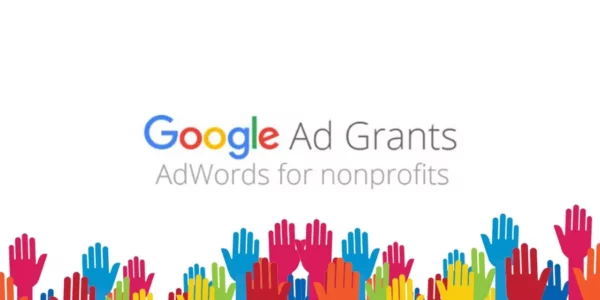
9. Tableau Public
As a nonprofit, transparency and accountability are marketing strategies with tremendous impacts. Tableau Public is one of the marketing tools for nonprofits to use to ensure transparency and share that with the public to increase engagement with supporters and trust among donors. The tool gives you the ability to make and share interactive visualizations like dashboards, graphs, and maps. You can create compelling stories using the tool using your own data from a spreadsheet or PDF.
10. Uplash
Images provide a significant source of traffic to your website when you integrate them well into your nonprofit content. Among the many marketing tools for nonprofits, Uplash is the most efficient for integrating eye-catching graphics and images by giving you access to a vast library of high-quality images that are free to use.
Using these marketing tools for nonprofits can help you optimize your marketing efforts and achieve your organization’s goals. Experiment with different tools and strategies to see what works best for your organization.
Community Engagement and Outreach
As a nonprofit organization, community engagement and outreach are crucial components of your marketing strategy. Engaging with your local community can help build trust and credibility, while outreach efforts can help you expand your reach and attract new supporters, thereby presenting critical marketing tools for nonprofits’ efforts. Here are some tactics you can use alongside the marketing tools for nonprofits to improve your community engagement and outreach efforts:

1. Social Media
Social media platforms are collectively powerful marketing tools for nonprofits to engage with the community and reach new supporters. You can keep your followers up-to-date on your organization’s activities and impact through social media posts. You can also use social media to promote events, share stories and testimonials, and encourage supporters to get involved.
2. Email Marketing
Email marketing is another one of the effective marketing tools for nonprofits if you are looking to keep your supporters informed and drive more donations. By sending regular newsletters and updates, you can share news and stories about your organization, promote upcoming events, and encourage supporters to donate or volunteer. You can also segment your email list to target specific groups of supporters, such as donors or volunteers.
3. Events
Hosting events is a great way to engage with your local community and attract new supporters. Whether it’s a fundraising gala, a volunteer fair, or a community cleanup, events allow you to showcase your organization’s impact and connect with potential supporters face-to-face. You can also partner with other organizations or businesses to co-host events and expand your reach.
4. Partnerships
Partnering with other organizations or businesses can also help you expand your reach and engage with new audiences. By collaborating on events, campaigns, or projects, you can leverage each other’s resources and expertise to achieve shared goals. You can also partner with local media outlets to get coverage for your organization and raise awareness about your cause.

5. Volunteer Management
Volunteers are a crucial part of many nonprofit organizations, and effective volunteer management can help you engage with your community and keep your volunteers motivated and engaged. Volunteer management software have marketing tools for nonprofits to use to streamline the volunteer recruitment and scheduling process, track volunteer hours and impact, and communicate with your volunteers more effectively.
By using these tactics and marketing tools for nonprofits, you can improve your community engagement and outreach efforts and attract new supporters to your cause. Remember to always be authentic, transparent, and respectful in your interactions with your community, and to measure the impact of your efforts to continually improve your marketing strategy.
Measuring and Improving Impact
The only way to know the effectiveness of your marketing tools for nonprofits is by analyzing and measuring the results achieved. This is important for your nonprofit since it ensures that your organization is making a difference. By tracking and analyzing data, you can gain insights into the success of your programs and make data-driven decisions to improve your impact.
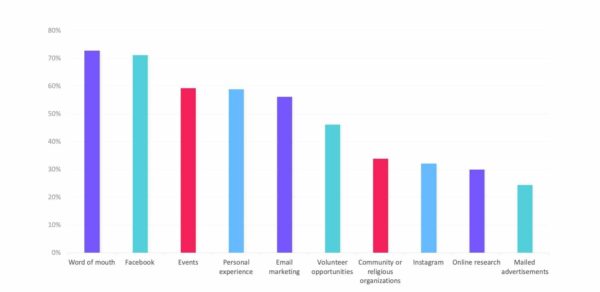
One way to measure impact is through surveys and testimonials. By asking your program participants for feedback, you can gather valuable insights into the effectiveness of your programs and identify areas for improvement. You can also collect success stories from your program participants to showcase the impact of your organization. Using marketing tools for nonprofits can improve the efficiency of this process.
Another way to measure impact is through tracking and analyzing data. By setting clear goals and tracking progress towards those goals, you can measure the success of your programs and identify areas for improvement. Marketing tools for nonprofits such as Google Analytics greatly improve this process and lead to positive results by enabling you to track website traffic, social media engagement, and other metrics to gain insights into the success of your marketing efforts.
It is also important to measure the impact of your programs in a meaningful way. While quantitative data such as raw numbers can be useful, qualitative data such as narratives on attitudes and feelings can provide context to the numbers. Marketing tools for nonprofits, such as Uplash, can help you present and gather compelling content and narratives, which will provide the qualitative data you need to measure the impact of your programs.
In conclusion, marketing tools for nonprofits play a central role in improving visibility and brand awareness in the highly competitive nonprofit space. These marketing tools for nonprofits also allow you to measure and improve the impact of your organization by helping you show the public or community how you are making a difference.



